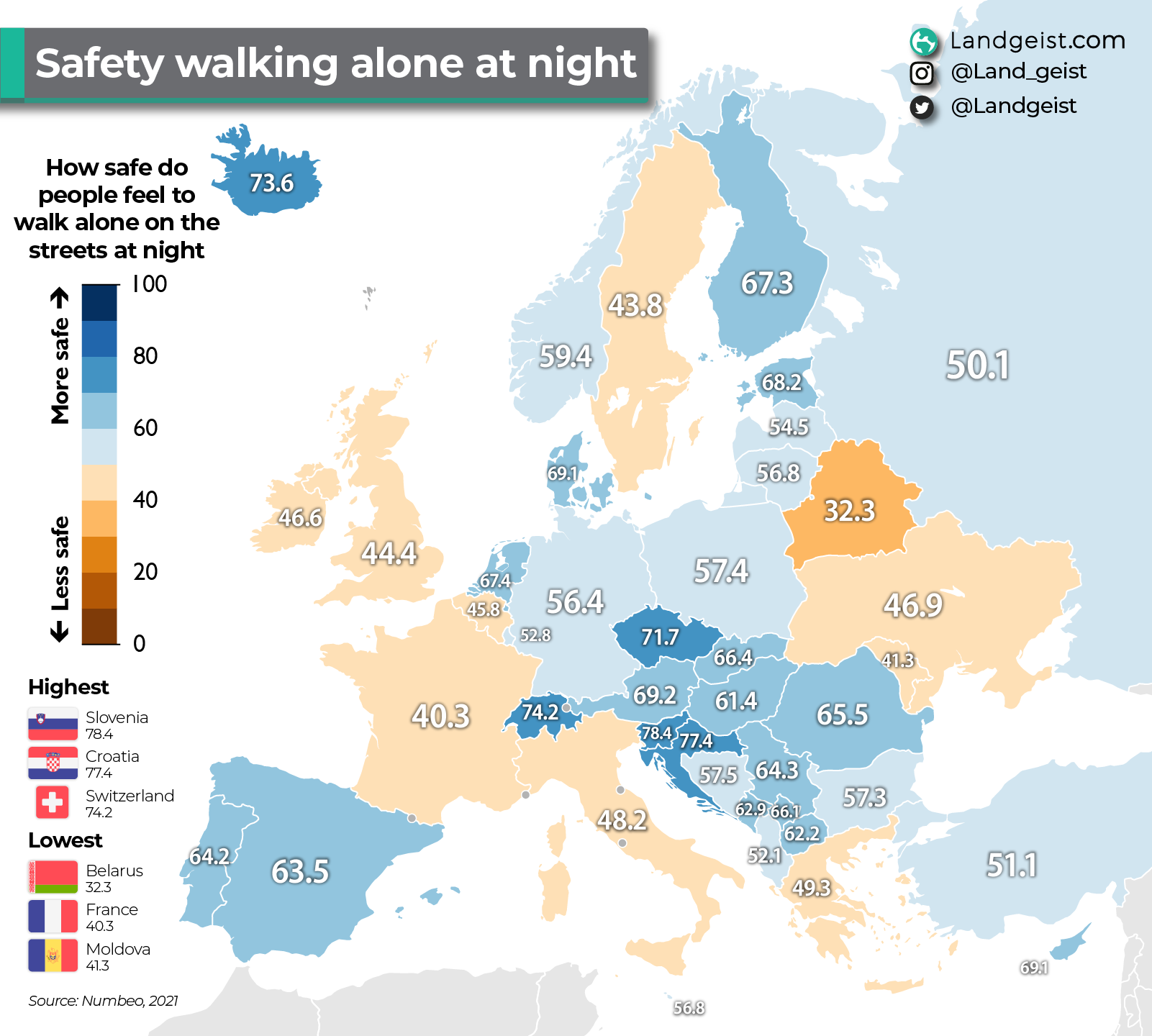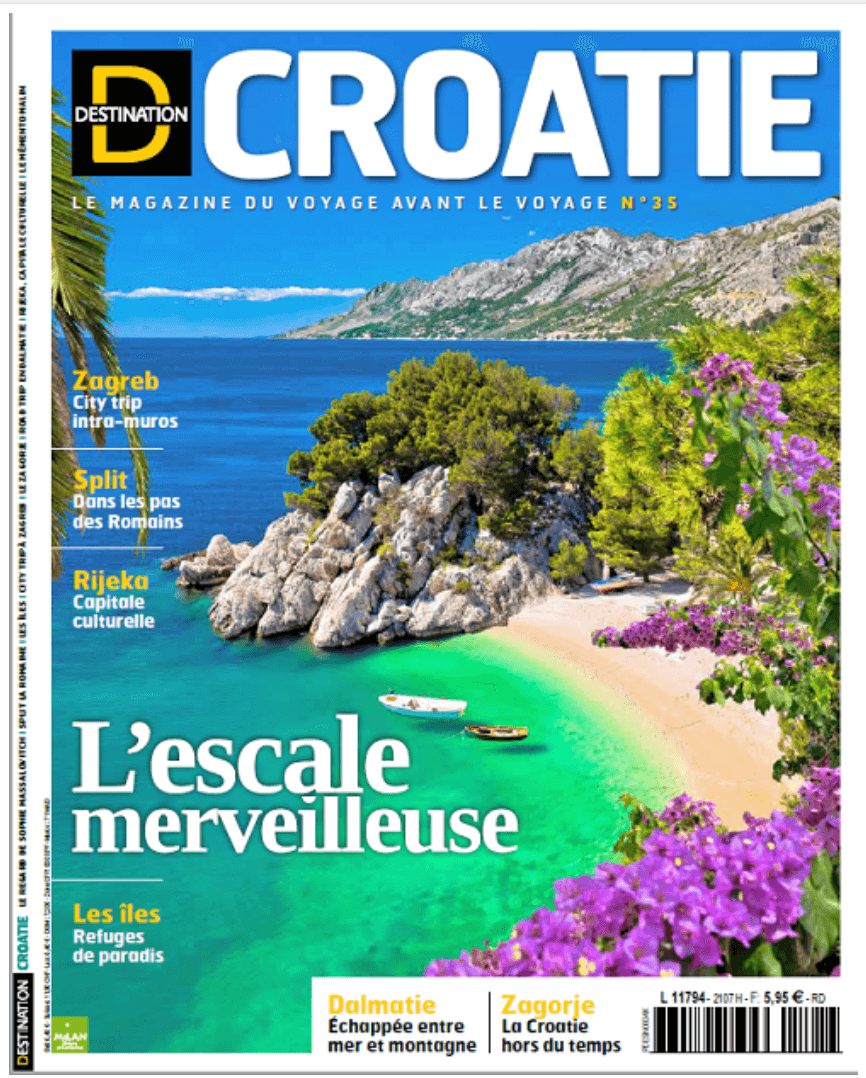The Kindness of Strangers: Losing a Laptop in Zagreb, Croatia
May 16, 2023 - The kindness of strangers, a constant theme in Croatia. Where else could you drop your laptop in the street and not realise until the next day and then be reunited with it?
Croatia is a very safe country, and female travellers in particular often comment on how much safer they feel walking around at night here than in cities in Western Europe.
It is also a country where I have heard countless stories over the years of tourists and expats leaving things such as their wallet in a cafe, only to return a couple of hours later and find it untouched, or behind the bar, waiting for their return.
I have my own experience, which I explain in this video - the day I somehow lost my laptop in Zagreb and didn't notice until the following morning in Varazdin.
And then I got a message from a stranger on Facebook...
The latest from the Fat Vlogger, which premieres at 19:53 tonight.
****
You can subscribe to the Paul Bradbury Croatia Expert YouTube channel here.
What is it like to live in Croatia? An expat for 20 years, you can follow my series, 20 Ways Croatia Changed Me in 20 Years, starting at the beginning - Business and Dalmatia.
Follow Paul Bradbury on LinkedIn.
Croatia, a Survival Kit for Foreigners is now available on Amazon in paperback and on Kindle.

Croatia, Second Safest European Country for Walking Alone at Night
November 29, 2021 - Based on statistics made by Numbeo, and compiled by the Landgeist web portal, Croatia is considered the second safest European country for walking alone at night, narrowly behind Slovenia, and ahead of Switzerland by more than three points.
There are things one must see or experience to confirm something that is said. About Croatia, I have already been able to corroborate almost immediately the turquoise color and transparency of its waters, as well as many of its customs and traditions. But being a person who by will has stopped going out constantly at night, it was difficult for me to take for granted the security that one has when walking at night in Croatian cities and towns. Even more to consider Croatia as the second safest European country to walk alone at night.
I remember when I was living in Rijeka and studying the Croatian language, my teacher asked the class to survey locals about life in their country. I did not know many people back then, as I had just arrived just a few months ago, in 2019. I had recently joined a film club at the Faculty of Philosophy and Humanities, and curiously I was the only male in the group. I asked three questions and emailed them to each one of the girls in my group. One of those questions was: ''What do you consider the most positive thing about living in Croatia?'' I may be wrong, but I remember almost with absolute certainty that all the answers to that question revolved around the safety of going outside and walking alone.
I know very well that historically, answering the question about safety on the streets can vary if the person surveyed is a woman or a man. I don't like talking assumptions, but living 24 years in Lima, Peru, I know that the reality of walking alone at night is uneven. My biggest fear was being mugged, but for a woman, it was being mugged, kidnapped, harassed, and more than it costs me to continue writing. I believe that the value of living in a place where you feel safe to walk alone at night greatly reflects the level of security in your country or city. Unfortunately, crime rates are measured differently and one thing is how safe you feel on the street and another is how safe your country really is.
Although the statistics to be presented in this article are prepared based on numerous factors and yield general results, it was enough for me to know the responses of my colleagues from the film club, as well as to see my 7-year-old neighbor returning home from school at 9:00 p.m., or walking with my cousins from the City Center One Mall in Split to the highway for us to wait for the bus almost at midnight, and many other experiences in these last two years, to confirm that walking alone at night through the streets of Croatia is safe indeed, and to be considered the second safest European country is not an exaggeration at all.
Regarding the Numbeo crime statistics published on November 15th of this year, and subsequently represented on a map and shared by Landgeist three days ago, the web portal commented the following:
''How safe one feels to walk alone on the streets at night, doesn’t necessarily say anything about the crime rate in the country. But it does give a very good sense of how safe people feel in their country. Although both are probably closely related, having a low crime rate doesn’t necessarily mean that people will also feel safe. Crime rates can give a skewed view in countries where crime is under-reported or people have lost faith in law enforcement and don’t report crimes anymore.
Apart from crime, there are other factors that can affect one's sense of safety, such as the presence of dangerous animals or poor urban planning that makes cities feel less safe than they are.
Of course, this statistic can vary from city to city and even between neighborhoods. Not just that, it can also vary depending on the demographic you ask. Data on these detailed statistics are non-existing for most countries. So keep in mind that this map only gives a very general view of how safe people feel to walk the streets alone at night per country.
Regardless of whether you think crime rates and how safe people feel are closely connected or not, let’s have a look at the map. Which will just give us an idea of how safe people feel to walk the streets alone at night.

Landgeist map, which shows Croatia as the second safest European country for walking alone at night with a score of 77.4.
We recently looked at how safe people in Asia feel to walk alone at night. As you can see, this map of Europe shows much smaller contrasts than the Asian map. No country in Europe scores over 80, but there are several countries in Asia that do score over 80. On the other hand, there is only one country in Europe that scores below 40. In Asia, there are quite a few countries that score below 40.
At the bottom end in Europe, there is one country that scores far lower than any other country: Belarus (32.3). The next 2 countries also score much lower than others: France (40.3) and Moldova (41.3). Sweden, the UK, Belgium, Ukraine, Ireland, Italy, and Greece also don’t score very well.
The highest scores can be found in Slovenia (78.4) and Croatia (77.4). The only ones to score over 75. Switzerland, Iceland, and the Czech Republic also score very well. The majority of the European countries seem to be scoring fairly OK, with most of them scoring between 50 and 70''.
For some, it may be one more curious fact. But Croatia is a country that from Zagreb, Slavonia, Istria, and even Dalmatia, can boast enviable numbers of tourism throughout the year. Nightlife is an important aspect of that reality, whether it is coming home from a rave, a nightclub, a bar, or a soccer game. Being the second safest European country for people to walk alone on the street at night cannot be overlooked, and it reinforces the idea that Croatia could be promoted as a safe destination for all, but it is a question of whether those who are to charge of showing the country to the rest of the world consider whether it is something important or not. We'll see.
For more on lifestyle, follow TCN's dedicated page.
Croatia A Desirable and Safe Tourist Destination For The French
June 29th, 2021 - The French magazine 'Destination,' the French edition of Forbes magazine, the women's magazine Version Femina, the daily, and the portal Le Figaro are just some of the prestigious French media that actively write and publish about Croatia as an attractive, desirable and safe tourist destination.
"Croatia's presence in the leading French media represents additional visibility and promotion, which is extremely important to us in these circumstances. Although destination magazine has a high readership, it will be available at points of sale for several months, at a time when many other destinations are also being promoted to attract French guests," Danijela Mihalić Đurica, Director of the CNTB Representation in France, pointed out, adding that numerous announcements in the French media were, among other things, the result of the office's activities in France, HTZ reports.

Destination France latest edition
Namely, the latest issue of Destination magazine is entirely dedicated to Croatia. The 100-page magazine talks about the beauties of Croatia. In addition to beaches and islands, the beauties of inland destinations such as Zagorje and city-break destinations such as Zagreb, Split, and Rijeka are included. The magazine has been printed in 100,000 copies and will be available at points of sale throughout France until the end of the summer. The French edition of Forbes Magazine published a list of 12 attractive European islands that are ideal destinations to visit this summer, and the list, along with the most beautiful Portuguese, Greek and Spanish islands, includes Korčula with additional information about current conditions for entering Croatia and the Stay Safe in Croatia project.
One of the most widely read French women's magazines, Version Femina, followed by an average of five million readers, published an article recommending a visit to beautiful Dubrovnik, Stradun, Lokrum, Lovrijenac Fortress, and other sights of this "pearl of the Adriatic Dubrovnik is the central topic and article on the specialized portal Figaronautisme, dedicated to nautical sports. This high-quality and highly readable nautical portal suggests to its readers a visit to Lokrum, where there are beautiful beaches, the natural phenomenon of the Dead Sea, and the Royal Fortress built by the French themselves during Napoleon's occupation.
Biba magazine also writes about Croatia, which ranked the Plitvice Lakes National Park among the most beautiful places in Europe, while Korčula is on the list of the most beautiful islands that should definitely be visited this summer.
For more on travel in Croatia, follow TCN's dedicated page.."


